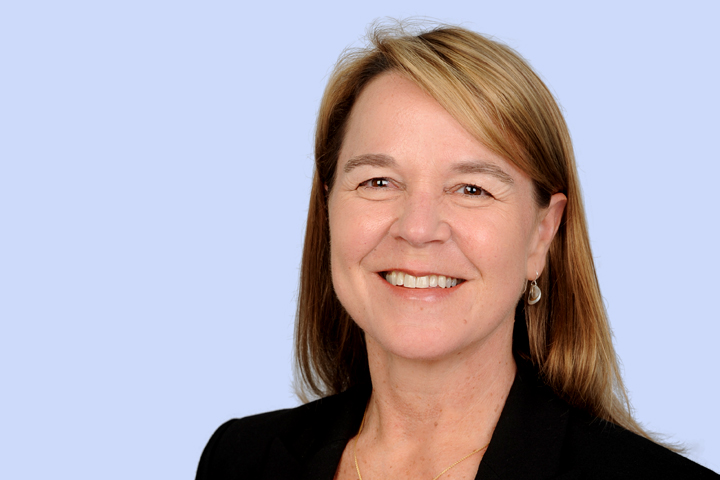
Black teachers: How to recruit them and make them stay

Lessons in higher education: What California can learn

Keeping California public university options open

Superintendents: Well-paid and walking away

The debt to degree connection

College in prison: How earning a degree can lead to a new life

In a highly unusual display of continuity in leadership, Long Beach Unified, one of California’s largest districts with over 73,000 students, has appointed deputy superintendent Jill Baker as its new superintendent. She will succeed Chris Steinhauser, who is stepping down after 18 years in his post, the longest tenure by far in any large school district in California.
Her appointment was notable on several counts. Baker will be the first woman to head the 135-year-old district, despite being in a profession that is dominated by women.
It also comes at a time when none of the district’s students are in class, but are at home attempting to prevent the spread of a potentially lethal virus that has shut down every school in California. When she takes over in July, she will have to manage the aftermath of the prolonged school shutdown, and its still as-yet-unknown impact on students.
But there will be few surprises for her.
Baker, 50, has spent her entire 28-year career in Long Beach, entering the district as an elementary school teacher in 1992. Current schools chief Steinhauser has even deeper roots, having been raised in Long Beach, attended public schools there and also spending his entire teaching career in the district. He succeeded Carl Cohn, who served as superintendent for 10 years, and is also a Long Beach native who worked in the district for 17 years before becoming superintendent.
For a video presentation from Jill Baker, go here.
Large urban districts typically endure — or suffer from — high superintendent turnover. The average length of tenure in large districts nationally is a little over five years, according to the most recent study from the Broad Center, although turnover is often much more rapid than that. According to tracking by EdSource, turnover in the state’s largest districts has declined somewhat in California over the last three years, perhaps in part because districts are turning to people with longstanding ties to the district or the communities they serve, based on the theory that they are more likely to stay longer. Nonetheless, 16 of the superintendents in the state’s 30 largest districts were appointed to their posts in 2016 or later.
Long Beach, which vies with Fresno for the third or fourth largest district in the state after Los Angeles Unified and San Diego Unified, is an extreme outlier in terms of leadership longevity. By the time Baker takes over in the next school year, the district will have had just two superintendents in almost three decades. That compares with neighboring Los Angeles Unified, for example, which has had four superintendents in the last decade alone — although one of them, the late Superintendent Michelle King, had to step down for medical reasons.
“Good for Long Beach!” said Charles Kerchner, professor emeritus at the School of Educational Studies at Claremont Graduate University and an authority on educational organizations and teachers unions. “Compare what they have been able to do with the rapid turnover in most urban school districts and you can see the dividends that continuous improvement and building trust provides to students and the community.”
Over the years, Long Beach has been viewed as having achieved greater success than many other comparable districts in several areas. It was, for example, listed as one of the districts as “beating the odds” in African American and Latino student achievement in a 2019 report by the Learning Policy Institute, and many observers have attributed some of the district’s successes to its stable leadership. In 2003, it was awarded the $1 million Broad Prize to districts that have demonstrated “the greatest overall performance and improvement in student achievement while narrowing achievement gaps among low-income students and students of color.” It is one of only two California districts ever to have been awarded the prize. The other is nearby Garden Grove Unified.
Former superintendent Cohn points to a less obvious explanation for Long Beach’s leadership longevity: continuity on the school board. Felton Williams, the current president, has been on the board for 16 years, although he just announced this will be his last year. Jon Meyer has been there for 17. Two others have been there six years. “It is very rare for a Long Beach Unified board member to seek higher office or use the school board as a stepping stone for the city council or state legislature,” said Cohn. “That’s unlike what you find in other large urban districts where the school board is often the first rung on the political ladder.”
EdSource writer John Fensterwald contributed to the article.

Part-time instructors, many who work for decades off the tenure track and at a lower pay rate, have been called “apprentices to nowhere.”

A bill to mandate use of the method will not advance in the Legislature this year in the face of teachers union opposition.

Nearly a third of the 930 districts statewide that reported data had a higher rate of chronic absenteeism in 2022-23 than the year before.

The move puts the fate of AB 2222 in question, but supporters insist that there is room to negotiate changes that can help tackle the state’s literacy crisis.
Comments (1)
Comments Policy
We welcome your comments. All comments are moderated for civility, relevance and other considerations. Click here for EdSource's Comments Policy.
Broklanders 4 years ago4 years ago
This incestuous leadership strategy leads to an absence of new ideas. If any one from the outside is allowed into the ‘inter circle’ they will quickly be suppressed and informed, that new ideas are not the Long Beach Way.